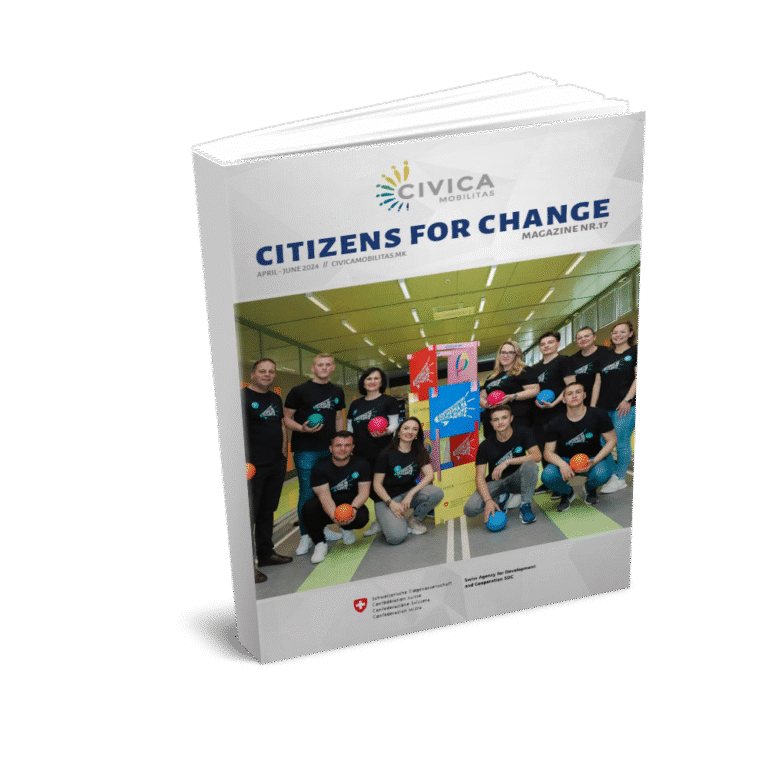Citizens for Change #13
APRIL-JUNE 2022
Civic Participation is one of the expressions that has been more and more used lately, and it concerns the involvement of the citizens in the decision making. It is not important if the citizens participate as individuals of organised groups or communities in this process, but it is rather important that this process is open for their contributions. CSOs are among the strongest supporters of the Civic Participation process. This is in line with their basic efforts, to include the nonactive citizens in the activities of the authorities regardless whether this is done at national or local level.
I have had more than one opportunity to be part of an open process for municipal consultations with the citizens, thanks to Community Forums which were introduced in Macedonia by the Swiss Development and Cooperation Agency. Such an organised approach has shown many citizens that they can be important stakeholders in the decision making at local level. They were made aware that they can have the power to influence the solving of their problems, it showed that they if they were active and if they worked together, they could convince the municipal authorities about what they stand for. This concept, citizen participation, refers to the power of the citizens. However, an invaluable part of the Civic Participation are also observations, regardless if they come from the citizens as individuals or the CSOs. What do they show? They show if the things are according to the plans; if the planned activities solve the problems or changes should be made; if there are more efficient ways to solve the problems, at home or in another country; if…
CSOs often have these observations, and they call them researches, analyses, studies, comparative studies. The basis for them are many data systematically collected with various methods. These observations are made available to the citizens and authorities to show them the state of affairs, where it can be improved, who is responsible for it, etc. Of course, it remains open if the authorities take into consideration these observations and if they use them in their work, especially in the planning processes. It is a real pity not to use the information that is everybody’s benefit.
In this issue of “Citizens for Change” we focus on several of these observations. The Knowledge Management Centre has researched the digital skills in the state and public administration; the Organization for Housing and Tenants analysed the situation with the housing of the young people, and current issues such as discrimination, bullying and hate speech with the high school students and teachers were researched by the Institute for Human Rights. This is only part of the contents that we have prepared for you.
What are the benefits of the Civic Participation for the individuals, communities, organizations and society? We all learn through this process, we obtain more knowledge, we gain authority, power and ability to solve problems. As citizens, we communicate, we develop relations and capacities to act and maintain or change the conditions.
Civic Participation is an important indicator for the democratic development of a country, whether we will develop and practice it largely depends on us.
Have a pleasant reading!








